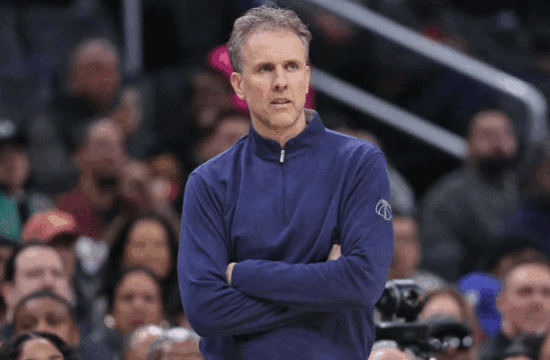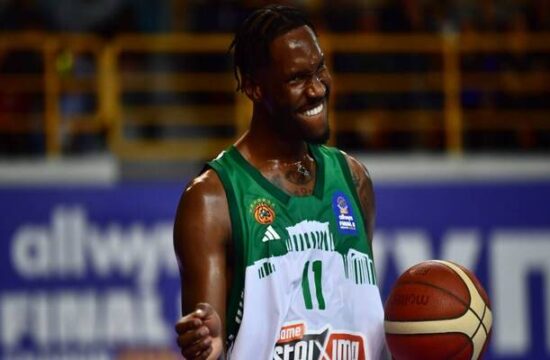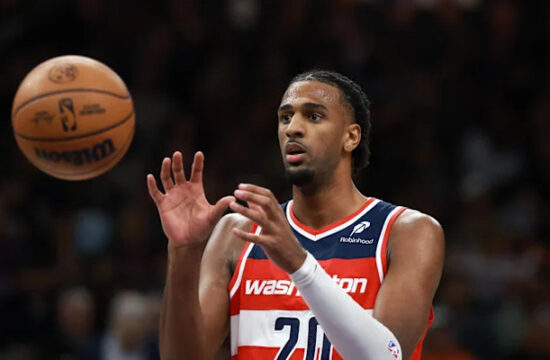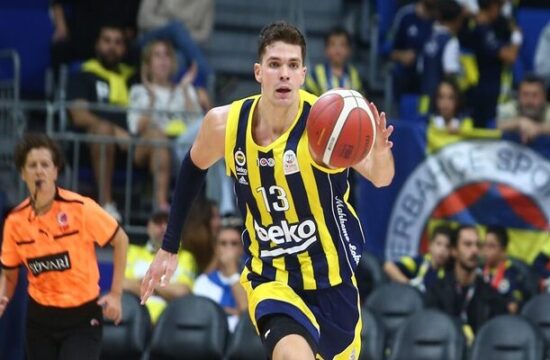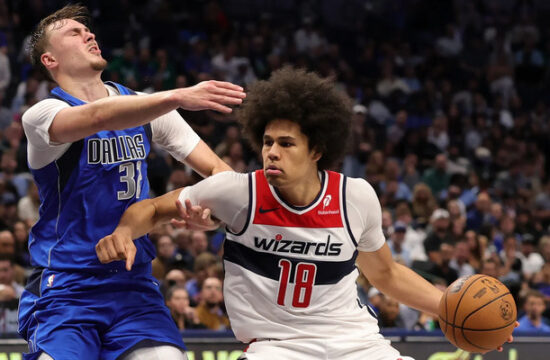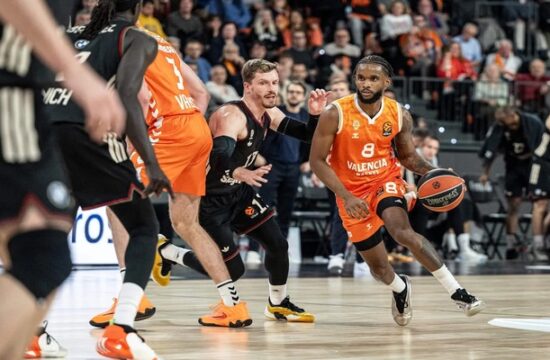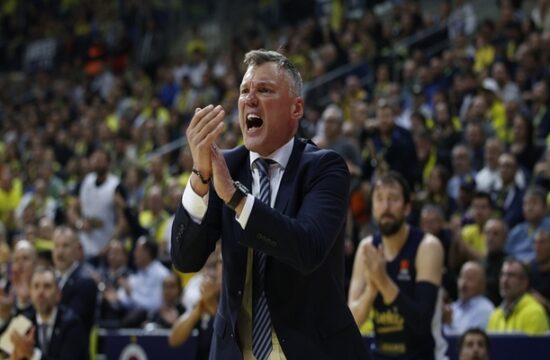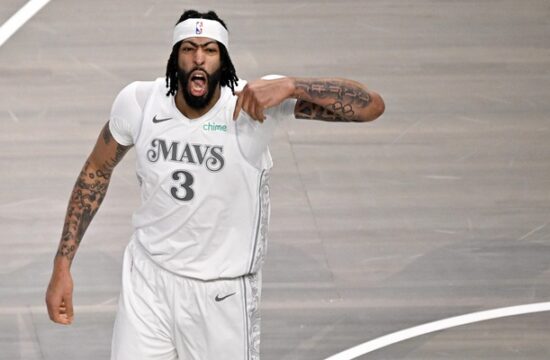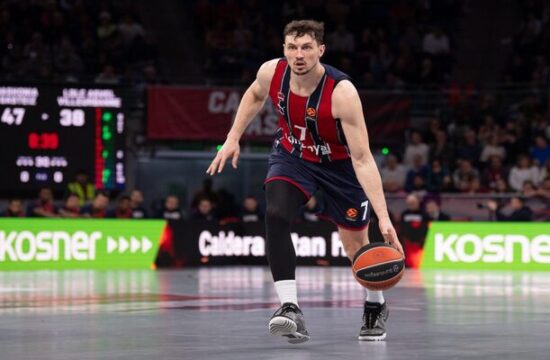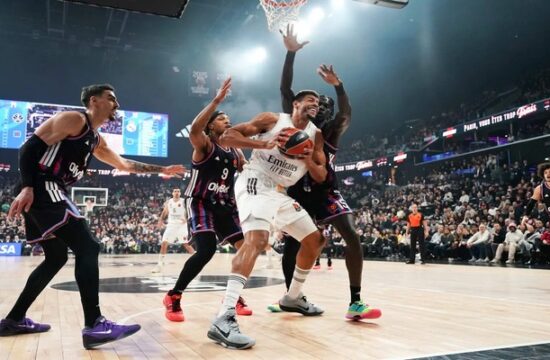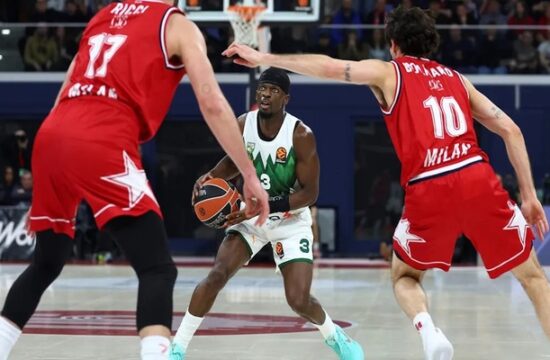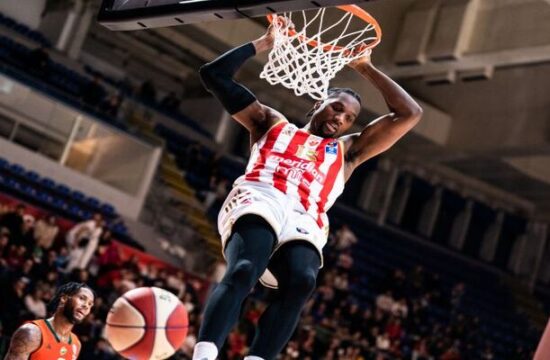The Games of week 19:
FC Barcelona vs Fenerbahçe
Barcelona vs Fenerbahçe at Palau Blaugrana rarely needs extra context. A classic of European basketball, heavy tactics, heavy talent, and this one delivered on all of it.
Will Clyburn got the start with the responsibility of guarding Talen Horton Tucker, and from the jump Fenerbahçe stayed loyal to their identity, switching everything. The opening minutes were slow, Jan Vesely scored the lone two points in the first two minutes, but the game flipped once Fenerbahçe found a pressure point. Flat screens near half court to get Horton Tucker attacking downhill sparked a 9 0 run and forced Xavi Pascual into the first timeout of the night.
The timeout did not stop the bleeding. Vesely was the only source of early offense for Barcelona, scoring the first six, but back to back threes from Tarik Biberovic pushed the lead to double digits. Turnovers were the only thing keeping it from exploding further, five in the quarter for Fenerbahçe. Pascual tried to change the tone by inserting Lapprovitola, who immediately knocked down a three with 43 seconds left, but Barcelona’s pick and roll defense, hedging late and switching later, kept getting exposed.
Fenerbahçe shot the lights out in the first quarter, 10 of 12 from the field, 5 of 6 from three, with Biberovic and Baldwin combining for 18 points on perfect shooting. The scoreboard told the story, 29 14 after one.
The second quarter followed the same script. Fenerbahçe’s defense caused panic, stalled Barcelona’s offense and forced tough shots. Jasikevicius was so locked in defensively that after one miscommunication leading to an open Kevin Punter three that went in, he immediately called timeout. The response was textbook. A beautiful after timeout set freed Jantunen for a three and stretched the lead to 18.
Barcelona briefly found life through a six point possession, Punter’s three plus one and a Satoransky layup, but Wade Baldwin checked back in and reasserted control, scoring and assisting. Barcelona’s offense was almost entirely Kevin Punter, who poured in 14 in the quarter, but it barely dented the margin. Fenerbahçe went to halftime up 53 41.
Once again, Fenerbahçe came out sharper. An 8 3 run to open the third punished Barcelona’s defensive miscommunications and forced another Pascual timeout. Punter continued to be the only consistent creator, but this quarter belonged to Fenerbahçe. They shredded switches over and over, shot 8 of 9 from two, and at one point pushed the lead to 20.
On defense, Jasikevicius made a notable adjustment, asking De Colo to hard hedge to avoid switching onto Punter. The Yellow and Blues still won the quarter 20 15 and carried an 18 point cushion into the fourth.
Then Palau woke up. Barcelona showed a completely different edge, more ball pressure, more urgency. Parra scored the first five, Brizuela added the next five, fueling a 13 5 run in just over five minutes. Jasikevicius had no choice but to call timeout. It did not stop it. Barcelona scored four more and forced another stoppage with the lead down to five.
Offensive rebounding was massive, eight in the quarter, paired with a defense that held Fenerbahçe scoreless for more than six minutes until Horton Tucker finally got to the line. A Brizuela layup with 28 seconds left cut it to three, but it never went lower. Fenerbahçe held on, 82 78.
The second half shooting from deep deserted Fenerbahçe, 0 of 9 from three, but the free throw line told the real story. 20 of 25 for Fenerbahçe, 11 of 16 for Barcelona. Biberovic led all scorers with 19, Baldwin added 16 with five rebounds and seven assists. For Barcelona, Kevin Punter carried the load with 24 points, supported by three teammates in double figures.
A classic, tilted early by execution and discipline, nearly stolen late by effort and belief.
Hapoel BC vs Valencia BC
Rivalry games do not need history to feel personal. Hapoel against Valencia has reached that point, and this one had everything turned up.
The first surprise came before the ball went up, Bar Timor in the starting five ahead of Yan Madar, Vasilije Micic and Antonio Blakeney. From the opening possession Valencia stayed loyal to who they are, pushing the pace, picking up full court even after made shots, making every touch uncomfortable. Early on the game was tight, evenly matched, both teams feeling each other out.
Pedro Martinez made the first real adjustment, sending Sako to the floor, and it paid off immediately. The French big sparked a 9 2 run with four points and a steal, opening a seven point gap. Dimitris Itoudis answered with a double big lineup of Motley and Odiasse, and with back to back turnovers from Valencia, their only two of the quarter, Hapoel trimmed it back to three by the end of the first.
The second quarter opened with Martinez leaning into defense, giving minutes to Isaac Nogues, one of the best defensive guards in the league. In just three minutes the 21 year old made Micic’s life miserable, but Valencia could not fully cash in thanks to excellent defensive transition from the EuroCup champions. Then the game flipped on Antonio Blakeney.
First a corner three, Hapoel’s first of the night, then a pull up three from the wing, and then Motley joined in to cap a 9 2 run that forced Martinez to stop the game. Valencia’s offense completely stalled, just six points in over five minutes and no points for about four until Jean Montero ended the drought with a wild runner. It barely mattered. Hapoel kept piling on, winning the quarter 28 12 and taking a 49 36 lead into halftime. Blakeney already had 15. Valencia’s shooting was rough, 38 percent from the field and 11 percent from three, but offensive rebounding kept them afloat with 12 before the break.
The third quarter started with something Valencia badly missed earlier. Nate Reuvers drilled a deep three on the first possession and scored the first nine points for the Taronja. The game sped up immediately, 13 12 in the quarter when a timeout came three minutes in. Valencia’s defense, usually so reliable, showed cracks with pick and roll coverage and miscommunications, and Hapoel punished them. After a Jones three the lead ballooned to 16, the biggest of the night.
Valencia never folds. An 8 0 run dragged the margin back to single digits before Hapoel closed the quarter strong with a 7 3 push, entering the fourth up 73 61.
Valencia struck first again in the fourth, a 5 0 burst in under a minute. Hapoel answered with a Motley pick and pop three to restore a double digit lead. Valencia countered with a 4 0 run in 20 seconds. Yan Madar was electric off the bench all night, keeping Valencia close, but the tide kept shifting. A 10 2 run capped by a Montero three tied the game with 2:25 left. Valencia’s defensive activity spiked, and points became hard to find for Hapoel.
Reuvers finished a nice Montero feed to put Valencia up two. After a stop, Montero had the ball with a chance to close it and turned it over. Hapoel ran and tied the game with 57 seconds left. Montero committed another turnover, but Braxton Key saved the night, stepping in for a perfect charge. The final shot came up short, Reuvers tipped it in after the buzzer, and the game went to overtime.
Overtime belonged to Jean Montero. He put on the Superman cape, scoring 10 points, even as Madar tried to be his Kryptonite with six of his own. As the young guards traded punches, an unsung hero emerged. Taylor rose for a massive rejection on a corner three, the kind of play that tilts games. Valencia escaped Israel with a 104 99 win.
Montero finished with 29 points and eight assists, with Reuvers adding 20 and Darius Thompson 17. Offensive rebounding, 16 on the night, was decisive. For Hapoel, Blakeney scored 23, Madar set a career high with 20, but 13 turnovers proved too much in a game this tight.
Partizan vs Panathinaikos
This one took a while to find a pulse, but once it did, it belonged entirely to Partizan.
The opening minutes were messy on both sides. Partizan kept trying to establish Bruno Fernando inside, but the finishes were not there. When that stalled, the offense leaned into isolations from Cam Payne and Brown. On the other end, Panathinaikos played almost exclusively through its guards, with TJ Shorts and Sloukas doing most of the damage they could manage. It was not pretty basketball, but it was revealing.
Defensively, Partizan set the tone early. They were aggressive, hedging hard on Panathinaikos ball handlers and forcing decisions. That pressure paid off at the end of the first quarter, when Partizan closed on a 7 0 run fueled by pace and mistakes. Panathinaikos had no answers. Despite the rough start offensively, Partizan led by one after one quarter, mostly because they took care of the ball. Five turnovers for the Greens, just one for the home team.
The second unit mattered. Jekiri, Partizan’s backup center, was huge by simply being in the right spots. He scored inside repeatedly off off ball reactions, many of them created by Calathes finding him at the perfect time. Partizan kept playing fast in the second quarter and stayed relentless defensively. Every possession had effort, and that effort turned into transition chances and more Panathinaikos mistakes. By halftime, Partizan had opened a 12 point lead.
Matchups started to tilt the floor. Brown being guarded by TJ Shorts did not work for Panathinaikos. Brown’s size and shot creation hurt them on both ends. Cedi Osman never found a rhythm either, checked by one of the league’s best defensive forwards in Bonga. Panathinaikos looked uncomfortable, searching for answers that were not there.
The third quarter removed all doubt. Partizan stretched the lead to 24 and effectively ended the game. They dominated every aspect. By that point Panathinaikos had already committed 16 turnovers, compared to just seven for Partizan. The Greens managed only nine points in the quarter, swallowed by pressure and pace.
Beyond the defense, the real separator was how Partizan played offense. This was not isolation heavy or static. The ball moved, players reacted, and reads were made on the fly. The assist total told the story, 20 on the night, a reflection of a team playing together and trusting the pass.
The fourth quarter was a formality. Panathinaikos showed some fight and won the quarter 20 12, but it never threatened the outcome. Only one Panathinaikos player reached double figures, and the second leading scorer finished with just seven points. The team felt disconnected from start to finish.
By the final buzzer, the takeaway was clear. With Penarroya on the sideline and full buy in from the roster, Partizan suddenly looks like one of the most enjoyable teams to watch in the league, not just because they win, but because of how they do it.
Key Performances of the Past Week:
Jean Montero vs Hapoel BC
Here we are once again, giving our flowers to a 22 year old, 188 cm Dominican guard, and this time there is no debate. In one of the most hostile environments you will find in the EuroLeague, Jean Montero was the MAN. Valencia needed someone to drag them through a game that went beyond basketball, and Montero did exactly that, willing his team into a 16 point comeback win.
Let’s talk hoop. The box score already tells a loud story. Career highs everywhere. Twenty nine points on ruthless efficiency, 7 of 10 from two, 2 of 6 from three, a perfect 9 of 9 from the line. His previous best was 25. He tied his career marks in rebounds with four and assists with eight. On paper, that is a big night. In context, it was massive.
The timing is what elevates this from very good to special. Montero owned the last 15 minutes of the game, fourth quarter plus overtime. Twenty one points and four assists when the game tightened, when possessions mattered, when legs were heavy and decisions defined outcomes. He went 6 of 10 from the floor in that stretch and did not miss a single free throw, 7 of 7, every one of them a small act of control in chaos.
There is always a moment that captures a performance, the snapshot you remember when the numbers fade. This one had it. The overtime three, created off the dribble, after breaking Micic’s ankles, a shot that broke the internet and Hapoel fans’ hearts at the same time. It gave Valencia a lead they never gave back.
At 22, in that building, in that game, Jean Montero did not just play well. He announced himself again.
Standings Watch:
This was one of those EuroLeague weeks that quietly reshapes the picture. The defending champions took care of business and now own a two win cushion over their closest chasers, a trio that includes Olympiacos, Valencia and FC Barcelona. In a league built on thin margins, two wins suddenly feels loud.
Not everyone is heading in the right direction. Hapoel and Monaco are trending the wrong way, both riding losing streaks and sliding down the table. For Monaco, the drop is especially sharp. They now sit in the last Play In spot, tied in wins with Zalgiris, which tells you how quickly the ground can disappear under your feet.
Behind them, the Play In chase is tightening. EA7 Olimpia Milano is leading that group, sitting just one win shy of 10th place. Dubai is right there as well, only one win behind Milano, lurking and waiting for another stumble ahead of them.
The biggest loser of the week was Virtus. Two defeats in the double week pushed them into a tough spot. They are now three wins away from the Play In, grouped with Maccabi and FC Bayern, and suddenly the math is starting to look uncomfortable. The question now hangs in the air and it is a fair one. Are Virtus chances of getting to the Play In already slipping away?
In this league, nothing is settled. But momentum, good or bad, is starting to matter.
Week 20 Games to Watch:
EA7 Milano vs Dubai BC
This might not be the most glamorous matchup on the board, but it is easily one of the heaviest. No other game of the round carries the same implications. Play In aspirations are on the line, and the math is simple. A Milano win here could be the nail on Dubai’s coffin. Flip the result, and suddenly the two teams are tied, both outside looking in, both very much alive.
Neither of these teams is really known for their defense, and that is putting it kindly. Offense, though, is a different story. Despite very different styles, both teams are very, very good on that end of the floor, which all but guarantees a high scoring game on the horizon.
Microwave type shooters, elite scorers, high flying big men, PnR maestros. This game has it all. It may not shine on paper at first glance, but if you care about the Play In race, this one is not optional.
Panathinaikos vs Fenerbahçe
The last two EuroLeague champions, on the same floor, in the 2026 Final Four site. It is hard not to ask the obvious question. Is this a preview for May?
The two teams arrive here moving in very different directions. Fenerbahçe is rolling, winners of six straight and untouched by defeat since January 8th. Panathinaikos, meanwhile, has been below .500 since the turn of the year. And yet, everyone around the league knows the same truth. The Greens are capable of beating anyone, anywhere, on any given night.
Stylistically, this one writes itself. Fenerbahçe’s defense has been outstanding and remains their primary weapon. Panathinaikos does its biggest damage on the other side of the ball, leaning on offense to bend games in their favor. It sets up the oldest debate in basketball, offense versus defense, with two teams fully committed to their identity.
Then there is the sideline. Two of the best coaches Europe has to offer, both more than capable of swinging a game with one adjustment, one lineup tweak, one perfectly timed timeout. Their fingerprints will be all over this one.
Something has to give. The only real question is which side bends first.
What’s at Stake:
What is happening in the Côte d’Azur? AS Monaco has dropped five straight games and in the process has slid from second place all the way to tenth, clinging to the last Play In spot. This is not a gentle drift down the standings. It is a free fall, and it demands an explanation.
The offense has slipped, though not collapsed. Before this skid Monaco was humming along at an elite 121.5 offensive rating. Over the last five games that number has fallen to 113.6. That matters, but it is not the real problem. The defense is. Before January 19th, Monaco owned the second best defense in the league at a 111.4 defensive rating. Since then, they have been the third worst unit in the EuroLeague, bleeding points at a 126.1 defensive rating. That is a swing of 14.7 points per 100 possessions, the kind of shift that flips wins into losses almost overnight.
One stat captures the collapse perfectly. During this five game losing streak, Monaco has posted as many games with a defensive rating above 120 as they did in the previous 22 games combined. Five. The defensive floor has disappeared.
And the issues are not limited to what is happening between the lines. Off the floor, the noise is getting louder. Vassilis Spanoulis has already voiced his frustration with the lack of depth, pointing out that playing a nine month season with two or three games per week using just 12 players is not normal. Other teams have 17 or 18 players. Monaco does not, and that reality shows up in tired legs and compromised practices.
There have also been reports of delayed salaries and even the possibility of a player strike after missing a domestic game. None of that helps stabilize a locker room already under pressure.
So this is the moment. With everything unraveling on and off the floor, the question is simple and heavy at the same time. Can Monaco steady the ship, or has the promised land slipped just out of reach?
Biggest News Around EuroLeague
The injury bug keeps circling Piraeus and it just took another bite. Cory Joseph is the latest name to land on Olympiacos injury report, joining a list that already includes mid season additions Monte Morris and Frank Ntilikina, plus the ever unlucky Keenan Evans. For a team that values structure, control, and continuity at the point of attack, this is about as cruel as timing gets.
Joseph, the Canadian guard who once lifted an NBA title with the San Antonio Spurs, suffered a left hamstring strain and will miss some time. That leaves Bartzokas staring at a depth chart that is suddenly very short at the one. Right now, Thomas Walkup is the only true option available, and the margin for error has evaporated.
The context makes this even more fascinating. Olympiacos has won six of its last seven games and is riding real momentum, the kind that usually cushions a blow like this. They are playing connected basketball, leaning on collective execution and trust rather than individual brilliance.
So the question hangs in the air. Is this one absence too many, or is the collective spirit of this group strong enough to absorb yet another hit and keep the machine running? In Piraeus, that answer tends to come not from who is missing, but from who is still standing.
This article was written by the European Hoops team: Tiago Cordeiro, João Caeiro and André Lemos. Make sure you give us a follow on Twitter at @EthosEuroleague!

